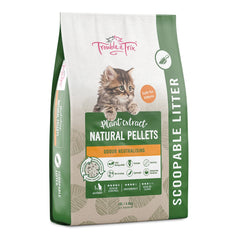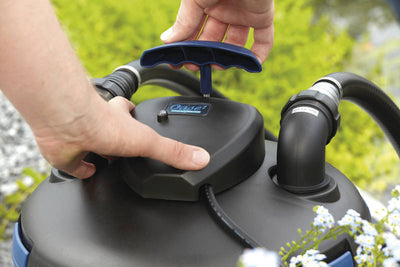Transitioning your cat's litter can be a daunting task, but it doesn't have to be.

We know that some cats can be finicky when it comes to their litter so it is important to take your time with the transition process.
With the right approach and some helpful tips, you can make the switch to a new litter with ease. Whether you're looking to switch to a different type of litter or want to try a new brand, this guide has everything you need to know to make the transition as smooth as possible.
Why Change Cat Litter?
Choose the Right Cat Litter.
 Before you can transition your cat to a new litter, you need to choose the right one. Consider your cat's preferences and any potential health concerns. For example, if your cat has respiratory issues, you may want to avoid dusty litters. If your cat is picky about texture, you may need to experiment with different types of litter.
Before you can transition your cat to a new litter, you need to choose the right one. Consider your cat's preferences and any potential health concerns. For example, if your cat has respiratory issues, you may want to avoid dusty litters. If your cat is picky about texture, you may need to experiment with different types of litter. With cat litter, you tend to get what you pay for. If you are looking for a high quality cat litter, it may be a little more expensive initially but it will save you time, effort and will keep your cat happy, and healthy!
Learn more about the different types of cat litter here in our blog - What is the best cat litter for indoor cats?
Introduce the New Litter Gradually.
The key to successfully transitioning your cat to a new litter is to introduce it gradually. Start by mixing a small amount of the new litter with their old litter, gradually increasing the amount of new litter each day. This will allow your cat to get used to the new texture and scent without feeling overwhelmed. Be patient and don't rush the process, as some cats may take longer to adjust than others. With time and patience, your cat will be using their new litter with ease.
Mix the Old and New Litter.
The first step in transitioning your cat to a new litter is to mix the old and new litter together. Start with a small amount of the new litter and gradually increase the amount over the course of a week or two. This will allow your cat to get used to the new scent and texture without feeling overwhelmed. Be sure to monitor your cat's behavior during this time to ensure they are adjusting well. If they seem hesitant or avoid the litter box, slow down the transition process and give them more time to adjust.
How Long Will it Take to Transition to a New Cat Litter?
Transitioning your cat to a new litter can be a delicate process, but it can be done smoothly with a gradual approach. To avoid overwhelming your feline friend, start by mixing a small amount of the new litter with their current litter. For the first two days, use a ratio of 25% new litter and 75% old litter. Then, over the next two days, gradually increase the amount of new litter to a 50/50 ratio. On days five and six, use a ratio of 75% new litter and 25% old litter. By day seven, your cat should be fully transitioned to the new litter with 100% of it in the litter tray. This gradual approach will help your cat adjust to the new litter without causing any stress or confusion.
Monitor Your Cat's Behaviour.
As you transition your cat to a new litter, it's important to keep a close eye on their behavior. Watch for any signs of discomfort or reluctance to use the litter tray.
If your cat seems hesitant or avoids the litter box altogether, slow down the transition process and give them more time to adjust.
It's also important to clean the litter tray regularly to ensure your cat feels comfortable using it. With patience and consistency, your cat will adjust to the new litter in no time.
Make the Switch Completely.
Once your cat has successfully used the new litter for a few days, it's time to make the switch completely. Remove all of the old litter from the litter box and replace it with the new litter. Make sure to clean the litter box thoroughly before adding the new litter. It's also a good idea to place a few extra litter boxes around the house during the transition period to ensure your cat always has access to a clean litter box.
With a little patience and consistency, your cat will be using the new litter without any issues.
© weknowpets 2023







